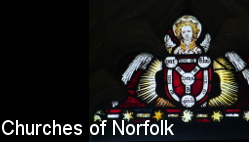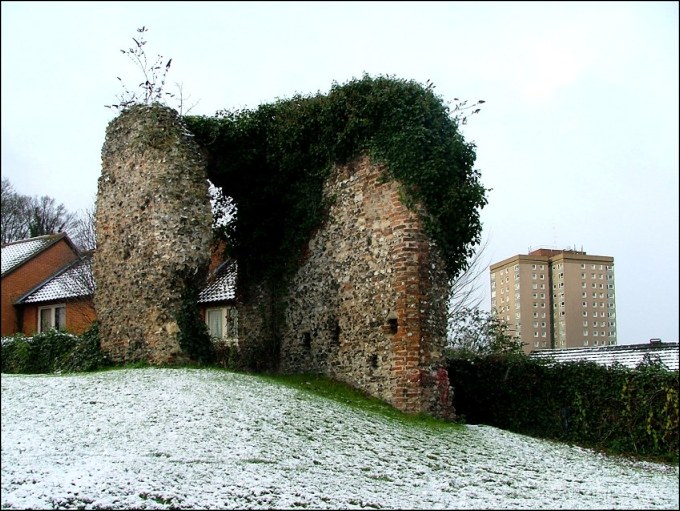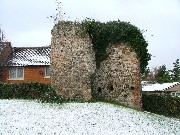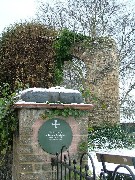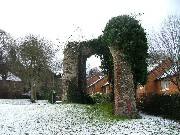| |
|
St Peter
Southgate, Norwich
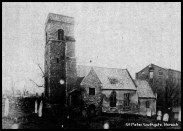 |
|
The
medieval city of Norwich was based around the
Norman castle, and with the modern inner ring
road performing a circle of the centre it is easy
to forget that the medieval city was not round at
all. In fact, there was a long straggle of
suburbia to the south along Ber Street and the
Royal Conesford highway, the main route to London
- today, this is King Street. Rouen Road,
separating the two, is a post-war invention of no
historic significance. Conesford had a vigorously
independent life, and no less than nine parish
churches of its own, four of which survive. St
Peter Southgate was the most southerly of the
nine, sitting close to the Berstrete Gate in the
city walls, and actually continued in use as a
parish church until well into the 19th century. |
By the
Victorian times, most of Conesford had given way to
warehouses and factories, and the slum houses of the poor
in St Julian and St Peter Parmentergate parishes. Here on
the southern tip Norwich had expanded to engulf Lakenham,
with its own parish churches, and the enthusuastic
Victorians built St Mark only a couple of hundred metres
from St Peter Southgate. This probably sounded its
death-knell.
| St
Peter fell into disuse before a proper 19th
century restoration could save it, and because it
was in a dangerous condition which can't have
been helped by its drastically sloping site it
was taken down in the 1880s. Only the lower part
of the tower survives, and you can make out a
red-brick tower arch that must have been 15th
century at the earliest, pointing to a rebuilding
at this time. But apart from the tower it was
never a large church - and could not have been,
given the slope. Today, you'll find its ruins
just to the north of King Street, hidden away up
a narrow passage called Southgate Lane, beside
some sheltered flats. |
|
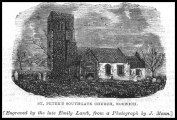 |
The photograph and engraving of the church
here were kindly provided by John Sapey. Curiously, the
Norwich Society plaque on the building records that it
was demolished in the 1340s, which is obviously incorrect
given the photographic and other evidence of its
survival. Perhaps this date refers to an earlier
rebuilding, but you'd think that someone would have
noticed.
Simon Knott, December 2005
|
|
|
